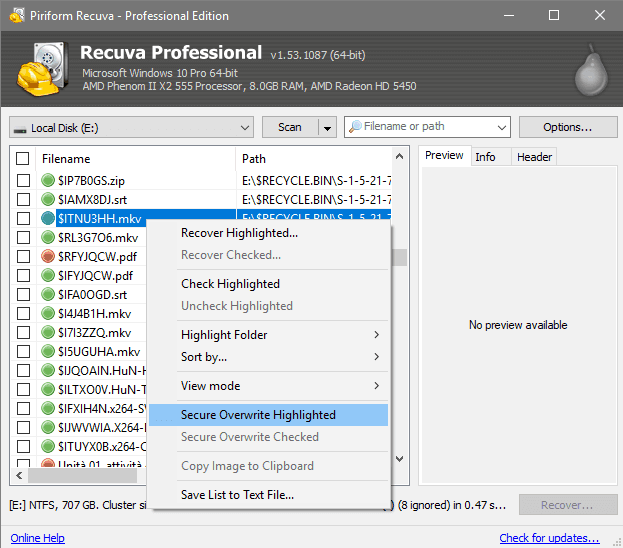Both solutions do exactly what they were intended for but their individual strengths lie in different aspects. Recuva doesn’t have a pleasing interface design but it’s definitely a powerhouse when it comes to scanning and data recovery. The software sports special features, too, such as the indicator for file condition or the file shredder. But what’s most important is that all of this can be used without paying anything.
Disk Drill, on the other hand, only provides recovery of a limited amount of data for free, but allows for its features to be enjoyed without any other kind of limitation. It’s an outstandingly user-friendly solution though, designed to provide strong scanning and recovery functions for even the least tech-savvy users. And just like Recuva, it also has a unique feature in the form of Recovery Vault, with which important folders can receive extra protection from mishap or accidental deletion.
Stellar, on the other hand, is definitely one for the masses, as highlighted by its simple and user-friendly interface. Admittedly, it’s an expensive solution but if you look at smaller details that truly showcase the company’s attentiveness to the product – such as resumable scans, data recovery from lost partitions, or the integrated help guide – it’s easy to see just how worthy a competitor to Recuva it is.











